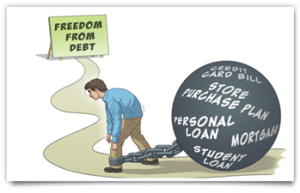Why Do Lenders Offer Guarantor Loans?
 Guarantor loans were created by lending companies to provide anyone who would struggle to successfully apply for a standard unsecured loan with the opportunity to secure a new line of credit.
Guarantor loans were created by lending companies to provide anyone who would struggle to successfully apply for a standard unsecured loan with the opportunity to secure a new line of credit.
When applying for an unsecured bad credit loan, the borrower will generally be charged with a very high interest rate because they will be viewed as posing a risk to the lender due to their poor credit history. Guarantor loans, however, offer an alternative way of borrowing that does not place reliance on having a perfect credit history. By offering re-assure to the lender that someone you know can cover any repayments you may miss, the perceived risk to the lender is reduced and this in turn will reduce the amount of interest charged for borrowing.
Generally guarantor loans are available with an associated APR of approximately 50%, which is considerably less than the 4000% charged by many payday loan companies for an unsecured loan.
How Guarantor Loans Work
The loan guarantor basically acts as a buffer against payment default. By undertaking a binding contract to cover any missed repayments and taking on responsibility for the loan, the risk to the lender is significantly reduced.
However, because the loan is in the borrower’s name, the guarantor does not need to do anything else. It’s important though, that the guarantor fully understands the importance of their commitment and responsibility. It is crucial that they can afford to make the repayments should the need arise and for this reason the guarantor – as opposed to the borrower – will be subject to credit checks, in order for the lender to approve the loan.
Benefits of Guarantor Loans
Guarantor loans offer borrowers with a less than perfect credit rating the chance to access credit at vastly reduced interest rates when compared to virtually all other forms of bad credit loan. This ensures that guarantor loans offer the best option for anyone with bad credit. It also provides the opportunity for the borrower to repair their credit record, because all repayments are made under the name of the person actually taking out the loan.
But what other benefits do guarantor loans offer? At a time when many people are struggling to meet the bills, combined with an insecure employment market, taking out a loan is often a worry in itself. This worry can be significantly reduced by applying for a guarantor loan, although it is important to fully understand the risks of benefits attached to guarantor loans, and how they work, before committing yourself.
Risks of Guarantor Loans
The guarantor will nearly always be someone who knows the borrower well and trusts them to make the repayments as scheduled. If however the borrower finds themselves in trouble and unable to make the payments, the guarantor will be expected to step in. If this situation arises, it’s always a good idea to make an arrangement to repay your guarantor if they have to step in and help.
Who can be a Guarantor?
Because the guarantor may have to step in and assume responsibility for the loan, it’s important they are financially secure themselves. For this reason, a guarantor will generally be expected to be a home owner aged over 23, with a excellent credit record and receiving a regular income.
How much can you Borrow?
An unsecured guarantor loan allows you to borrow up to £7,500, normally over 60 months. It is always prudent to ensure that there are no set up or hidden fees attached before signing up, to avoid extra costs.
Amanda Gillam : I work as a blog writer for a finance company called Solution Loans which specialises in Guarantor Loans. I hold a degree in financial management and enjoy writing about a variety of topics including finance, transport, travel, sport and business.
















